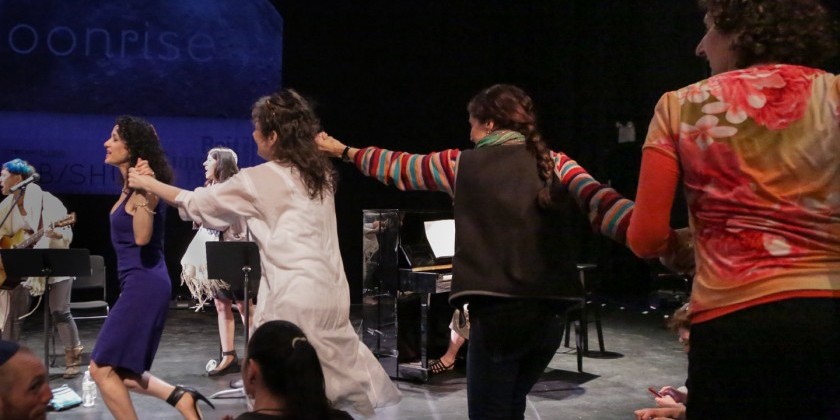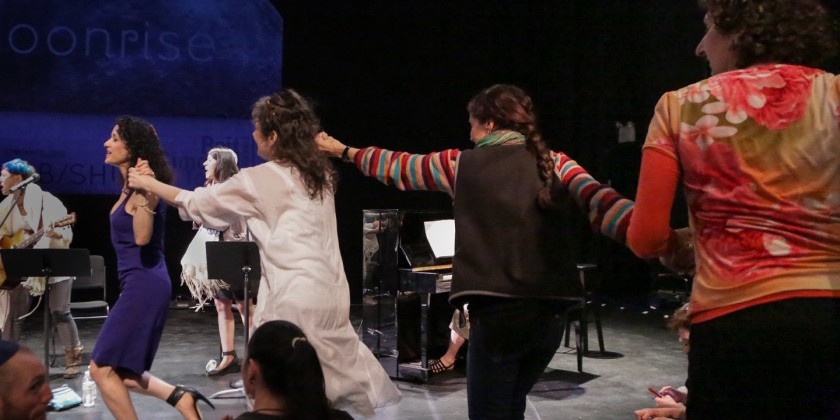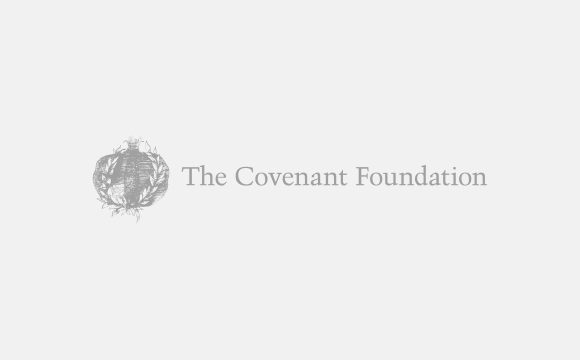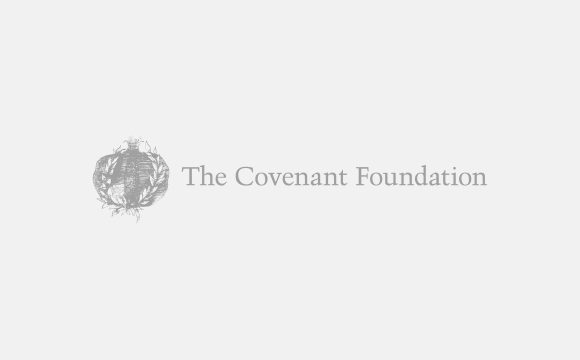The Genesis Plays Festival Opens at the 14th Street Y
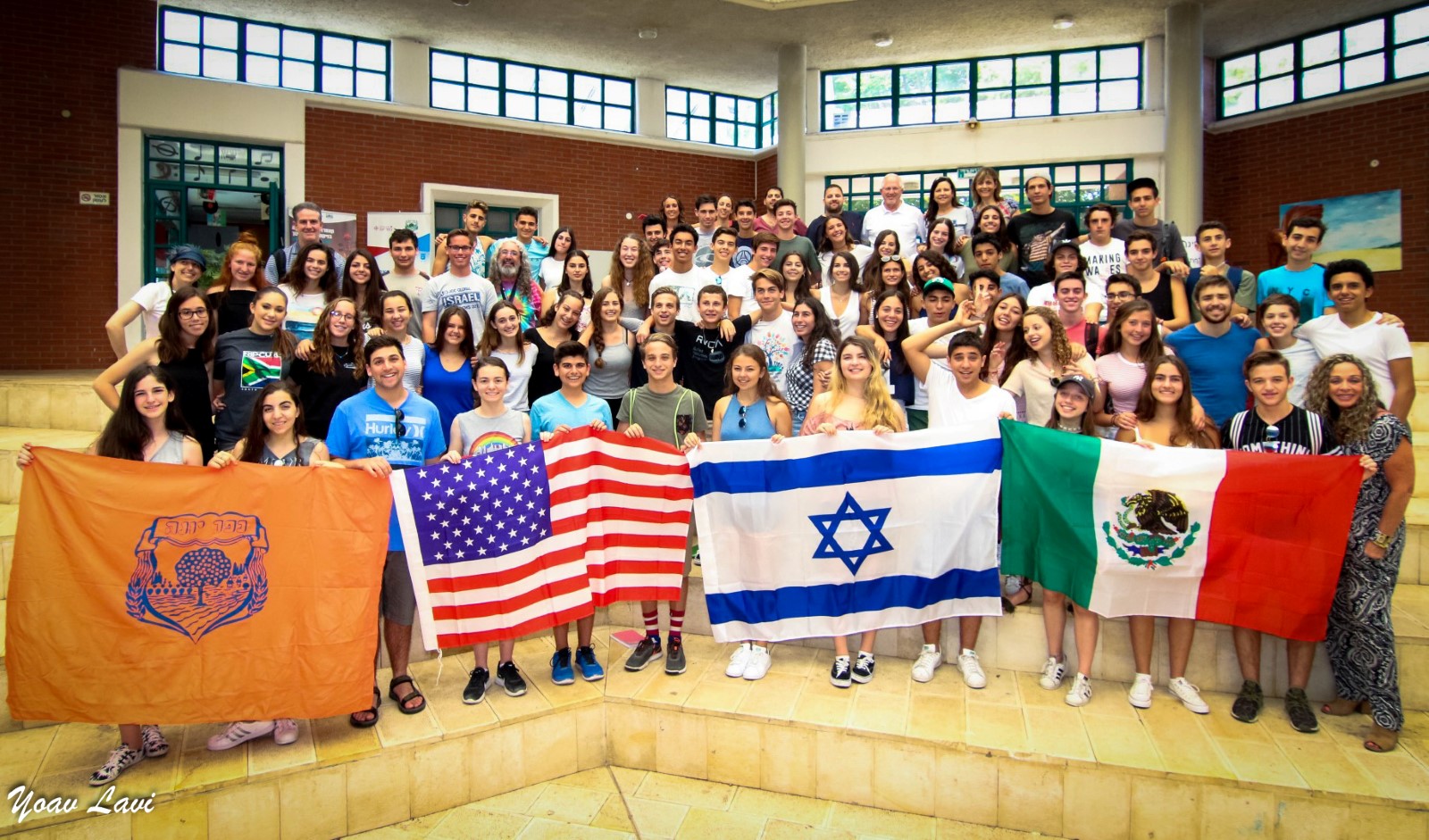
The Genesis Plays, a series of original performances interweaving the themes that occupy and animate five American cities with the narratives of seminal Biblical characters, are being performed together for the first time this month, at a festival at the Theater at the 14th Street Y in Manhattan.
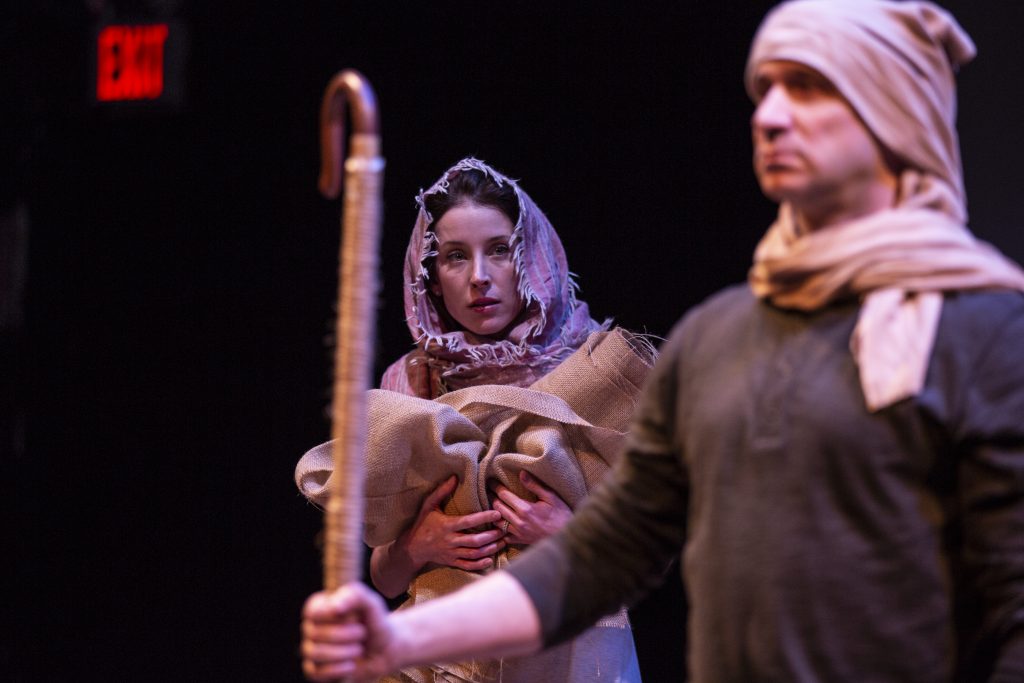
The plays, created over several years by playwright/performer Jon Adam Ross and director Chantal Pavageaux, with a grant from the Covenant Foundation and in consultation with a diverse swath of people in each city, present five surprising, radically different ways of examining characters whose stories piece together into the original multigenerational family drama.
The Abraham Play, inspired by life in Minnesota’s Twin Cities, follows a Wall Street stock jock searching for a lost deed to land, in a scavenger hunt where the audience holds the clues. The multimedia Leah/Rachel Play investigates the concept of sisterhood, featuring interviews with sisters of all ages that were conducted in Seattle by documentary filmmaker Ilana Trachtman, and live music performed by Seattle musician Brandon Blake (who is in New York for the month reprising his role). In The Rebecca Play, the city of Charleston, South Carolina, is cast as a mother, playing favorites among her white and black children.
“What they captured [in The Rebecca Play], and what seemed to make the audience go quiet at times, was the truth of the hidden racial divide here in Charleston,” said Joy Vandervort-Cobb, an actor, director and Associate Professor of African American Theatre and Performance at the College of Charleston who was among the community members Ross and Pavageaux consulted while developing The Rebecca Play.
“We need a safe place to dialogue, and you can get the dialogue started through this kind of work, which brings up real issues. You’re sitting in the anonymity of the darkness of the theater, and you’re watching, and then you want to talk about what you saw. The walls just come down, and the language flows much easier.”
Intrigued, Vandervort-Cobb subsequently flew to Austin, Texas to see The Jacob Play, which explores themes of gentrification and boundaries in a lively WWE-style wrestling smackdown that incorporates dance and music elements. She was so struck by the production — how it both differed from and spoke to The Rebecca Play — that she is hoping to come to New York to see all five of the Genesis Plays.
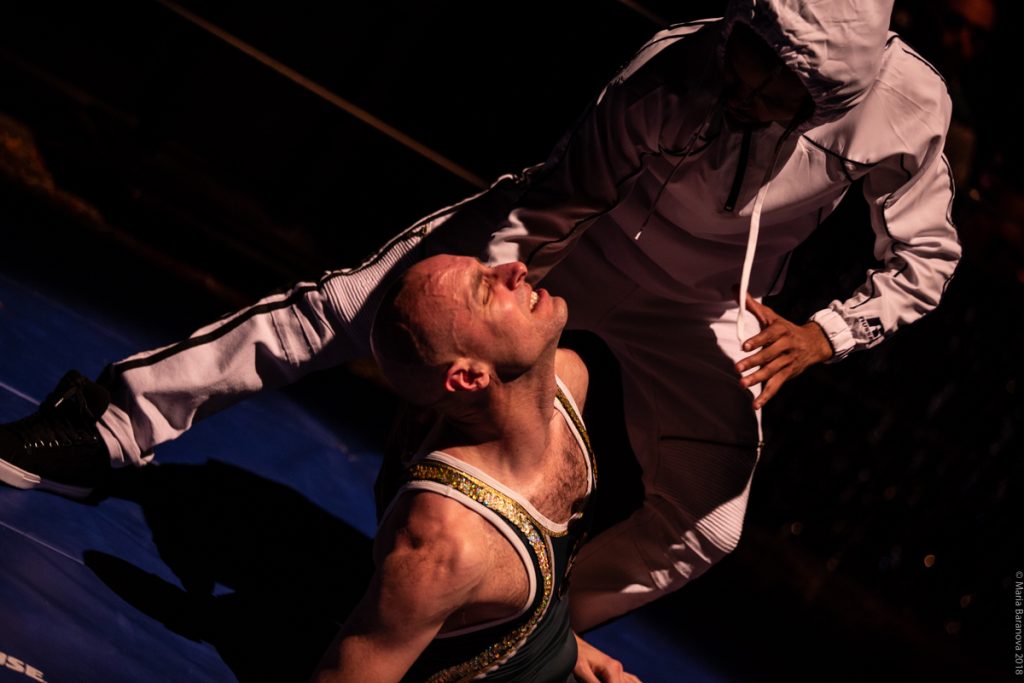
“I’m interested in seeing how these stories were told in different cities, what they culled from different cities,” Vandervort-Cobb said. “What are the struggles happening across our country, and how did they use these books from the Bible to tell those stories?”
The Genesis Plays are the first endeavor of the In[heir]itance Project, a non-profit arts organization that Ross and Pavageaux created in 2014, to engage communities “by putting their lived experiences in conversation with their sacred texts” and by involving audiences in the creative process. The In[heir]itance Project, which is supported by the Covenant Foundation, is already at work on its next effort: The Exodus Plays, which will explore the dramatic second book of the Hebrew Bible and, at the same time, the modern-day dramas unfolding in cities including Omaha, Memphis and Norfolk. The first Exodus Play, devised with formerly incarcerated New Yorkers in collaboration with rabbinical students at the Jewish Theological Seminary, debuted this Spring.
The big idea, Ross said, is that “these sacred texts shouldn’t live in a dusty old vault; they are as relevant today as they ever were. We’re trying to blur the line between what’s inherited and what’s lived, what’s sacred and what’s mundane. It’s not that we make the sacred mundane — it’s that we elevate the mundane to be in the same conversation as the sacred text.”
The idea behind the festival, Ross said, is that the texts, and the plays they inspired, “become more relevant when put in conversation with each other and not siloed as separate stories.” He added: “As artists, we are really excited to see and present five very different ways of telling stories side by side in the same space. It’s logistically challenging but very thrilling.”
From the outset, Ross wanted to broaden the perspective and reach of the In[heir]itance Project beyond the Jewish community — and beyond his own perspective as a white, cis-gender male. His director, Pavageaux, a friend from the NYU undergraduate theater scene, was raised Catholic, in Texas. Their team is diverse on every level, and they made sure to cast their net as wide as possible during visits to each of the cities.
Pavageaux described the 14th Street Y festival as an opportunity to present the plays as a five-act family drama, moving through time.
“There’s a lot of value in looking at these ancient texts that, if you’re a religious person, you come to understand one particular way,” she said. “When you put all of these stories next to each other, and show them in different ways, it cracks that whole thing open. It forces you to examine what your assumptions are — both about the actual text, and what it means to modernize an ancient text.”
Jill Maidhof, the Director of Jewish Experiences at the Jewish Community Center of Greater Kansas City, helped Ross and Pavageaux connect with Muslim, Christian and Jewish clergy and community members, members of interfaith dialogue groups and an organization focused on infertility. The result was The Sarah Play, in which the fourth wall — separating audience from actors — dissolves, as three actors debate how to tell the primal story of Sarah and Hagar.
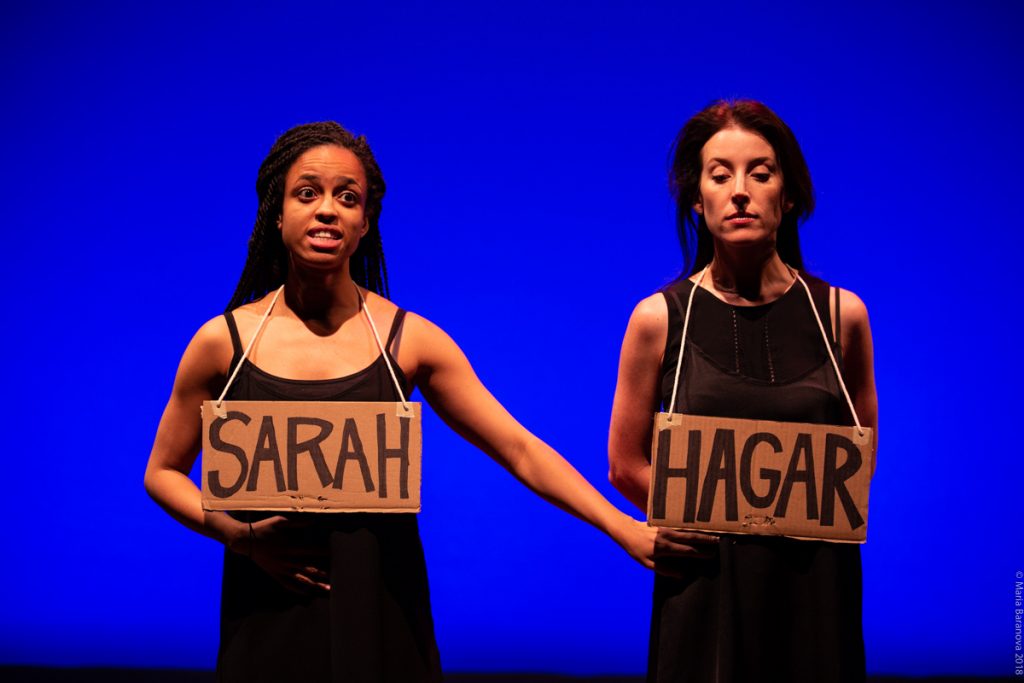
“There were revelations that came through every time I sat through one of these story circles or study sessions,” Maidhof said. “Every time, I learned something and came to appreciate different people’s respectfulness and thoughtfulness and creativity in expressing themselves. People want to be heard, and Jon and Chantal really heard them.”
“There were people in those story circles who, for example, had never sat next to a person in a hijab before,” she continued. “People don’t necessarily talk about who are we in this city, and what is this city about, and these issues of what did Sarah represent. I learned that Sarah is not mentioned by name in the Koran, and that Hagar is the prominent woman, and I learned that Ishmael was the person, according to Islamic tradition, who was brought by Abraham to be sacrificed.”
“I would have assumed that those following Abrahamic traditions believed the same of the Five Books of Moses, that we are all sort of coming from the same place — but no,” Maidhof continued. “From the very beginning — literally from Bereshit — we have different understandings.”
In the end, Maidhof said, The Sarah Play was “wonderful.” But Ross agrees that the process is just as important as the product.
“The idea that we’ve been able to be in places like Kansas and South Carolina and Texas, putting communities in conversation with one another through their inherited sacred texts, seems a pretty useful way to use our platform and our energies right now,” he said. “As we are more and more polarized, as we are more and more divided, as we are more and more calcified in our corners of comfort and belief, we see sacred texts being wielded as weapons for bad, for division, for the justification of bigotry. We realized that we could be a small part of the army that the world needs to reclaim sacred texts as instruments for good.”
The Genesis Plays festival runs through May 18. For tickets, please click here.
